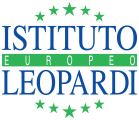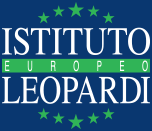– KINDERGARTEN –
EVERY CHILD IS A SEED TO CULTIVATE AND NURTURE
Our kindergarten is bilingual (Italian/English): throughout the day the mother tongue teachers interact with the children together with the Italian teacher, accompanying them in the entire school routine from the initial welcome to departure, from the preschool age, interacting with games, stories creative activities and experiences. The educational areas are equipped for playful activities that foster the child’s skills in the various areas of development: motor, emotional, social and cognitive.
The pedagogical approach uses play as a central and motivating element of each activity, as it is with play that children express themselves, narrating and re-elaborating personal and social experiences in a creative way. Therefore, the proposals are intended to respond, through playful activities, to the natural desire for knowledge. Our task is to support each child, assisting without replacing him, but encouraging and stimulating him to be independent. Finally, particular emphasis is given to the relational context, between the educator and the child and between the children.
PRESCHOOL
In addition to the pedagogical offer for children from 3 to 6 years of age, our school also has a section for children from 24 to 36 months of age.
The preschool section is a friendly area that fosters growth, encourages relationships, stimulates creativity, enhances the development of language, spurring the child to attain initial independence.
The child learns rules of coexistence, finds support and restraint in the management of his emotions, is encouraged and stimulated to attain awareness of his body, through sensory and motor development.
OBJECTIVES
- Knowledge of English through a “natural” method that leads to learning the language, through daily life, starting with its sound;
- Foster relationships, stimulate creativity, and develop language;
- Help the child to develop and achieve independence to acquire the ability to understand and control his body, to feel pleasure in “doing things by himself” and know how to ask for help, to perform the various activities without getting discouraged;
- Establish an identity to feel well and be confident in dealing with new experiences and to learn about oneself and feel accepted;
- Acquire skills to learn to reflect on experience through observation, exploration and the use of comparison, to ask questions, think, discover meanings;
- Complete and support the education work of the family.
EDUCATIONAL TOOLS
- School in open air which leads to awareness of the nature that surrounds us;
- Outdoor play area;
- Green lab;
- Drawing and painting room;
- Music and motor activities workshop;
- Drama workshop;
- Stage for shows;
- “Nap” room.
TEACHING METHOD
- Child-centred approach: behaviour and activities created especially for him;
- Reception: the school nominally welcomes each child and the experiences and expectations of the parents;
- Affectionate closeness, dialogue and tenderness are essential to ensure that each child is willing to bestow “trust”, to be accompanied in the adventure of knowledge;
- The caring and loving attention to the expressed and unexpressed needs of the child is the basis for the educational approach. Each intervention is aimed at strengthening self-esteem, to encourage and support the natural desire to know and discover the others and the world;
- Authority: the teachers present themselves as authoritative figures who help the child develop a correct relationship with reality;
- The educators acknowledge, promote and stimulate the curiosity and the proposals of the children, creating opportunities for learning, on the basis of what the children are discovering;
- Play is used as a central and motivating element for each activity. With play “children express themselves, narrating and re-elaborating personal and social experiences in a creative way”. In fact, through playful activities, we respond to their natural desire for knowledge.
SCHOOL HOURS
The “S. Anna” kindergarten is open from Monday to Friday:
from 8.00 to 16.00 with the possibility of extension until 17.00 or 18.00.
Departure is flexible, as under:
at 13.00; at 15.50 and at 16.50. From 17.00 onwards, when the parents arrive.
SCHOOL DAY
Throughout the day and over the week, the children carry out their activities in the designated areas, with the specialists in English, music, drama, painting:
- Throughout the day and over the week, the children carry out their activities in the designated areas, with the specialists in English, music, drama, painting:
- 8/9 ENTRANCE and RECEPTION
- 9/10.20 WORKSHOP ACTIVITIES (on rotation: English, music, drama, painting)
- 10.20/10.40 SNACK with fruit
- 10.40/12 WORKSHOP ACTIVITIES
- 12/13 LUNCH
- 13/14 FREE PLAY for the older children
- 14/15.30 for the older children WORKSHOP ACTIVITIES
- From 13.30 to 15 the small children sleep in the NAP room
- 15.30/15.50 SNACK and FAREWELLS
- 15.50/16 DEPARTURE
Every activity, whether educational or routine, is proposed at the same time, for the sole purpose of generating certainty in the child.
CANTEEN AND SCHOOL BUS
The school provides a canteen service for the small children with the following characteristics:
- Internal kitchen for the preparation of meals;
- Meals prepared in accordance with specific requisites under the supervision of a nutritionist, also in the case of food allergies or particular certified needs.
Food education is fundamental for a well-balanced development of children. The children will be encouraged to try new flavours, rewarding them for each small achievement.
On the parents’ request, the school can provide a school bus service.
Time is a game, played beautifully by children.
Heraclitus
ADDITIONAL ACTIVITIES
- Educational trips and shows: visits to museums, exhibitions, parks, educational farms, participation in concerts, theatrical shows;
- Alfabetilandia project: programme providing continuity with primary school;
- CODING unplugged project: start learning computational skills;
- PERSONALISED settling-in phase: GOING TO SCHOOL represents for many children the first separation from the family and a completely different way of living the day. The settling-in process is prepared through contact with the parents.
- After school until 18.
EXTRACURRICULAR ACTIVITIES
- Afternoon courses: play-dance, psychomotor activities, taekwondo, mini-rugby, Art Lab (Art workshop in English), yoga play;
- Every year Families are offered various play-sports activities, at the school premises.

